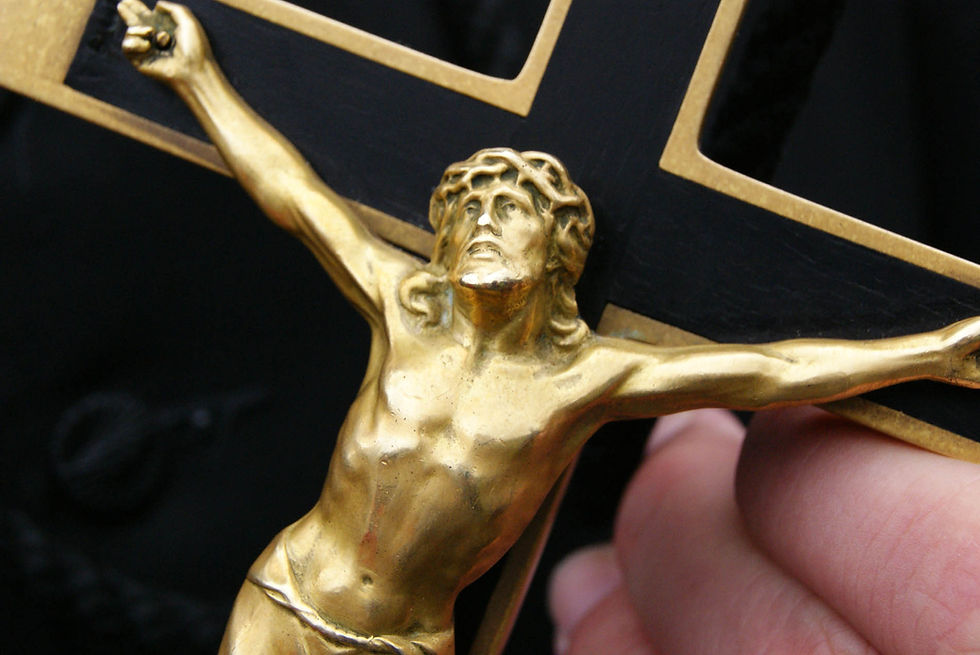How does God respond to evil?
- Mar 19, 2021
- 3 min read
We continue on our way trying to illuminate the question of evil in the world. I say illuminate, because I think it has already been made clear that there will always be something of a question mark on this issue. But we can broaden our gaze: I invite you to change your perspective. This time we are not going to start from what we humans know or experience about evil, but to ask God honestly how He positions Himself in the face of evil. If we look at Him and if we consider all that we know about Him, can we intuit an answer?
In John's Gospel we hear Jesus say "he who sees me sees the Father" (Jn 14:9). In Jesus we see the face of God. In his life God reveals himself to us. How then does Jesus position himself in the face of the question of evil?

Following his earthly life we see Jesus close to and present in the lives of those who suffer: he forgives sins, heals the sick, reveals injustices, satisfies the hungry and invites his disciples to do the same. We also see that he does not eliminate all the evil he encounters but points to a reality, to the kingdom of heaven, which begins here through faith in God the Father and good works, but which only reaches its fullness in eternal life. This life confronts and denounces the dimensions of man that collaborate with evil, such as the lust for power, the primacy of the law, but above all the lack of love and mercy.
This very life of Jesus will lead him to the cross, which will be the culmination of his mission. That is why it is so important to ask ourselves: What does Jesus experience there and what does it reveal to us about God?

Thus, in death on the cross, through the Son, God assumes the human being in his finitude and in his guilt. Jesus suffers both to the point of death, he suffers the ultimate consequence of both. On the cross he makes all human suffering his own and with it he demonstrates that he will never abandon man. Indeed, Christ takes up the cross in order to overcome it. In spite of the darkness, Jesus remains in obedience to his Father and in the faith that this God to whom he surrenders himself is the God of life. And the story continues. The cross does not have the last word. On the third day Jesus rises and is victorious over death. The risen Christ, in addition to triumphing himself over death and sin, brings creation to the fullness that God had in mind when he created the world. It is a fullness even greater than that which creation had before sin, because it is a world redeemed by love. That is why the Christian can contemplate and adore the cross, as we do on Good Friday, that is why he can also welcome it at different moments of his life because he trusts in the saving power that comes from it and becomes a sharer in the life of Jesus, who rose from the dead.
I would like to conclude with a few words of John Paul II, which may sum up God's response to evil:
"God did not respond to this distressing question that arises from the scandal provoked by evil with a principled explanation, as if to justify himself, but with the sacrifice of his own Son on the Cross. In the death of Jesus we find the apparent triumph of evil and the definitive victory of good; the darkest moment of history and the revelation of divine glory."
(Ángelus, sunday 19 of september in 2004)
The cross in itself, with all its meaning, is question enough, so I don't want to ask too many questions. I only want to invite you to contemplate the world and its suffering and especially your world and its sufferings from the experience of the cross. Does it change anything in your experience of evil and sin if you know you are accompanied by a God who has been and is present to the end, who is not absent but walks with you and is mercy and promise of life?
Katharina OMI

Comments